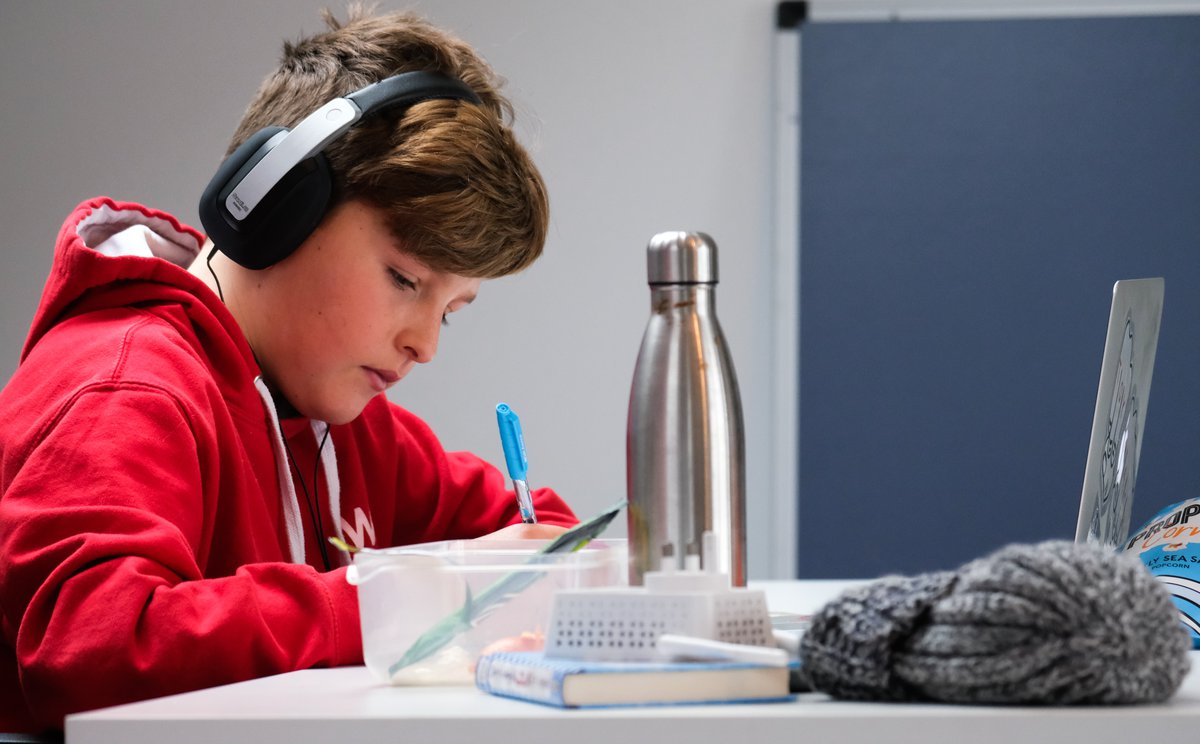
Mrs Anna Dombkins, a member of our school counselling team, shares advice on how to make the most of online learning.
For many of us, it's a strange new world having our children learning from home. With so much changing around us so quickly, it can feel like a whirlwind for all of us. Here's some tips for making the most of our home learning, and some encouragement that it's okay for new things to be hard!
1) Wellbeing comes first.
Before thinking about school for the day, concentrate on your child's wellbeing. Are they sleeping well, eating well and moving their bodies enough each day? If not, their learning will suffer. We give our kids the best chance to learn when their wellbeing is prioritised first.
2) Create a calm environment.
Managing our own stress, which is likely to be high during this time, and aiming to provide a settled, calm environment for our children will help their learning immensely. We know children are not learning when they are under stress, so take some time to address this first. If things get tense, take a break, restore calm and connection with your child, and try again later.
3) Get organised.
Starting the day with everything you and your child need will help maintain calm. Having a learning area set up with enough space, a comfortable desk and chair, and all the equipment necessary (workbooks, charged device, logins and passwords ready, pencil case etc.) will reduce the stress of constantly hunting for the things they need.
4) Look at the needs of the whole family.
We are all in different situations at the moment, and it's okay for your schedule to look different to the next person's. You might be working from home while your kids are learning from home. You might be looking after older relatives, you might have an unwell family member, you might have lost your job and be looking for work. Every situation is different, and it's okay to do what you need to manage. Communicate your family's needs with your child's teachers, so we know what you need, and can provide support.
5) Take the pressure off.
This is new for everyone, and it will take time to find a new groove. Allow everyone (including ourselves) the grace to find their way, make mistakes, try again and take their time. Keep expectations low. If at the end of the day everyone is happy, healthy, and has tried their best, it's a great day! Let go of the things not achieved, and start anew tomorrow.
6) Stay connected.
Our social interaction has completely changed and we need to find new ways to connect with the people we love. Helping our kids maintain connection with their friends, teachers and family members needs to be a priority. Find a safe way for your kids to do this, and allow the extra screen time necessary to help them feel connected. We also need to work on our own connection with our children- sometimes we can be in the same house, but are still very distant. We learn, grow, feel safe and heal all in the context of relationship, so our effort here is really important.
7) Dial up the fun!
With so many things cancelled or postponed, our kids may feel like the fun has been taken out of life. We can counter this by putting some extra effort into bringing extra fun and laughter into our homes. Use music, sing and dance, play games, surprise them with a treat, ask them for ideas and say "yes" as much as possible. Daily gratitude is another great way to focus as a family on the blessings God has given us. Try to focus on the things that fill us with joy!
Cast all your anxiety on Him, because He cares for you. (1 Peter 1:7)